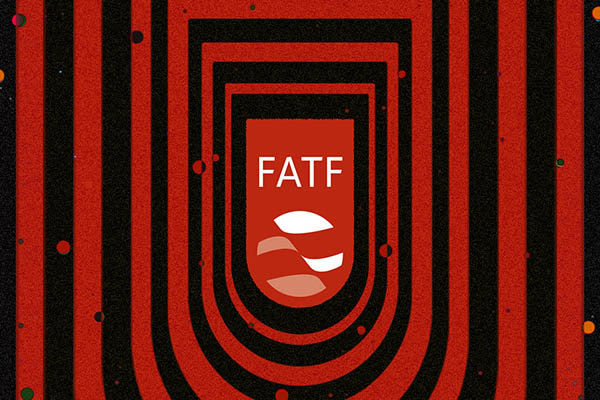
The Paris-based Financial Action Task Force (FATF) on Friday announced that Pakistan has “substantially” completed two action plans, moving the country one step closer to being removed from the “grey list.”
In a statement issued after the plenary meeting, the global money-laundering and terrorist financing watchdog noted that since June 2018—when it was added to the grey-list—Islamabad had made a “high-level political commitment” to work with the FATF and the Asia-Pacific Group to strengthen its anti-money laundering/combating financing of terrorism regime and to address its strategic counter terrorist financing-related deficiencies.
“Pakistan’s continued political commitment to combating both terrorist financing and money laundering has led to significant progress,” it said, adding that the country had demonstrated that terror financing investigations and prosecutions were targeting senior leaders and commanders of U.N. designated terrorist groups and that there is a positive upwards trend in the number of money-laundering investigations and prosecutions being pursued in Pakistan, in line with Pakistan’s risk profile.
“In addition, Pakistan also largely addressed its 2021 action plan ahead of the set times,” it said, adding that the plenary meeting had decided that “Pakistan has substantially completed its two action plans, covering 34 items, and warrants an on-site visit to verify that the implementation of Pakistan’s AML/CFT reforms has begun and is being sustained, and that the necessary political commitment remains in place to sustain implementation and improvement in the future.”
While the FATF did not specify any date for the on-site inspection, it said that it would be conducted at the “earliest possible date.”
Joint efforts
“Pakistan is one step away from exiting the grey list,” Minister of State for Foreign Affairs Hina Rabbani Khar told a press conference on Saturday morning. “The on-site visit marks the beginning of the end [of the] process that will eventually culminate in Pakistan’s exit from the grey list, hopefully forever,” she added.
Stressing that the government was working closely with the global watchdog to schedule the visit prior to the FATF’s plenary session in October, she said authorities were committed to taking the process forward with national consensus. “I also want to acknowledge, in fact, really want to emphasize, on the tireless efforts of teams who have done a tremendous job in achieving these strenuous, difficult and complicated targets. I think this is something to celebrate,” she said, stressing that Pakistan’s compliance with the FATF action plans was not achievable without united efforts at all levels.
Many departments and agencies at the federal and provincial level had contributed to the national cause, she said. “This also demonstrates that when we work together, all of the country, all of the nation, we can achieve sometimes what is considered to be impossible,” she said, adding that this was beyond politics and was a matter of national interest.
Admitting that Pakistan’s retention on the grey-list had been “politically motivated,” she said that it would nonetheless benefit the country, as it aligned with the strategic objective of strengthening the economy and improving integration in the international financial system.
Noting that Pakistan had completed the entire seven-point action plan a year ahead of the given timelines, she said this “spoke volumes” about the comprehensive reforms carried out in Pakistan. “Consequent to the fruitful discussions held at the plenary, the FATF has decided by consensus that Pakistan has addressed all technical benchmarks and completed all action plans,” she said, stressing this was “no less than a herculean feat and a remarkable achievement.”
Expressing confidence that the FATF decision would boost confidence in Pakistan’s economy and give it a much needed boost and improve the investment climate, she said Islamabad was now in a position to sustain the trajectory of reforms and also provide guidance and technical support to other countries on the grey-list. “I know we are far ahead regarding the financial regulations system within the region but we are also doing good when you compare us to international benchmarks,” she said, adding that she was positive the government would be fully prepared for the on-site visit and would exit the grey list at the earliest.
To a question, Khar admitted that Pakistan was the only country asked to complete two action plans. “It was quite unprecedented. We were, in fact, the only country that has had two simultaneous action plans to implement. It was tedious, arduous, it was difficult … There was legal framework to take care of, there were amendments to do and then there was institutionalization of new laws, building of structures and the system,” she said.
